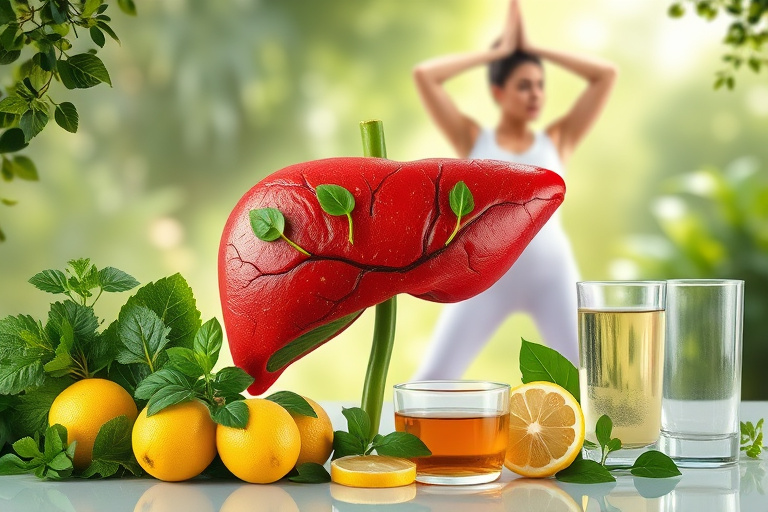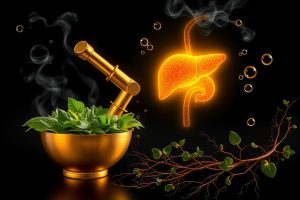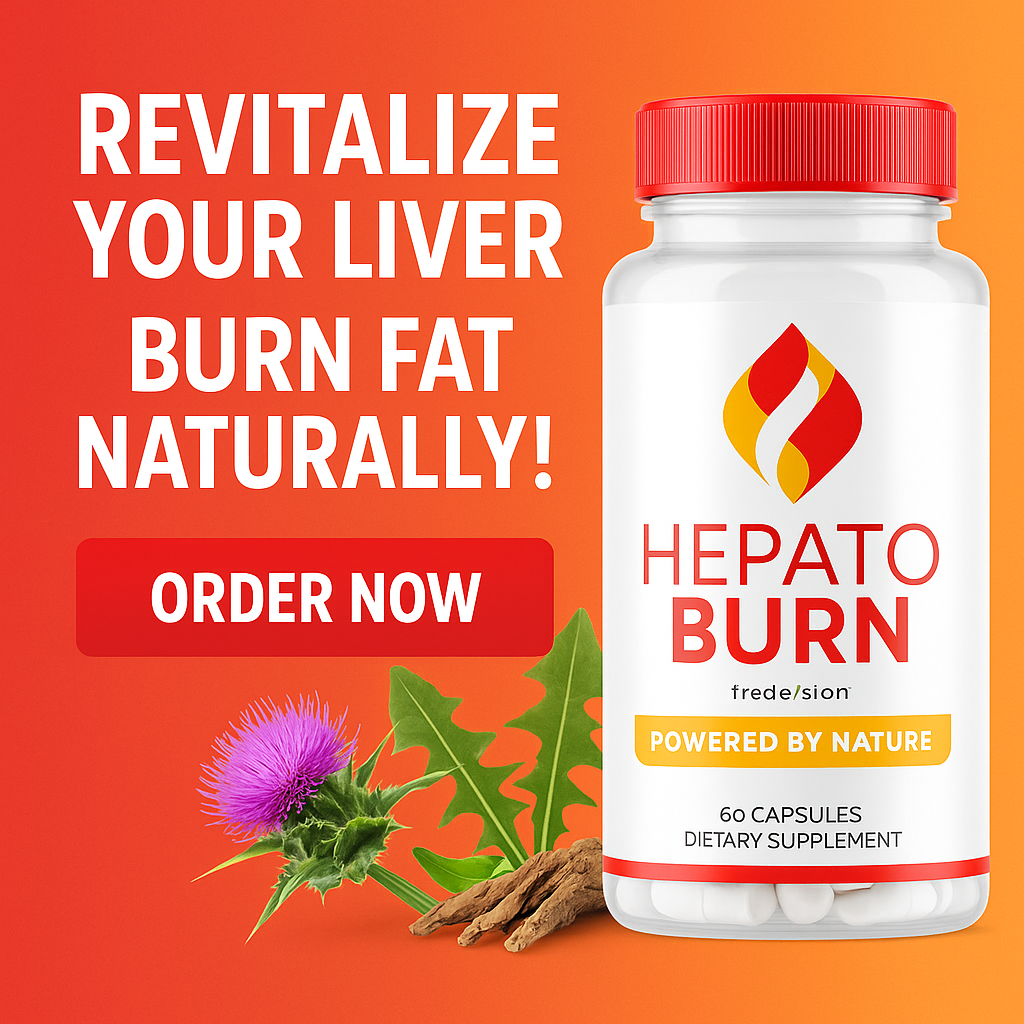Introduction
The health of the liver is vital for overall well-being, as it plays a central role in detoxifying the body, metabolizing nutrients, and supporting digestion. With increasing interest in natural health remedies, many individuals explore methods to enhance liver function through detoxification. Among these methods, hepatoburn and liver flushes have gained popularity as natural approaches to cleanse the liver and promote better health.
However, it is essential to approach these procedures with caution. While the idea of detoxing the liver may seem appealing, understanding their safety and scientific validity is crucial before attempting any liver cleansing protocol. This article provides a comprehensive guide to liver detoxification, focusing on safety tips and evidence-based practices.
Understanding Liver Detoxification and the Role of Liver Flushes
The liver naturally detoxifies the body by filtering blood, breaking down toxins, and metabolizing drugs and waste products. This organ is remarkably efficient at maintaining internal balance without external assistance. A liver flush or liver cleanse is a procedure or regimen designed to stimulate or support this natural process, often involving specific diets, supplements, or herbal remedies.
Many proponents claim that liver flushes can remove accumulated toxins, gallstones, or other impurities, leading to improved digestion and increased energy. However, misconceptions persist, such as the belief that the liver requires frequent “cleansing” beyond its innate detox capabilities. It is important to understand that the liver’s primary function is self-regulating, and the necessity of external cleanses is often overstated.
Are Liver Flushes Effective and Safe? Scientific Insights
Scientific research on liver flushes remains limited, and many claims lack robust evidence. While some ingredients used in natural liver cleanses—such as herbal teas or citrus-based drinks—are generally safe, their effectiveness in removing toxins or stones is not conclusively supported by scientific studies.
Common protocols may include fasting, consuming olive oil and citrus, or herbal supplements. Although these may cause temporary discomfort or bowel movements, they do not necessarily improve liver function or eliminate harmful substances. In fact, aggressive or unverified liver cleansing protocols can pose health risks, especially if they lead to dehydration, electrolyte imbalance, or interfere with medications.
It is important to recognize that the concept of “toxins” is often vague, and the liver’s natural processes are usually sufficient for detoxification. Therefore, relying solely on liver flushes without addressing underlying health issues or lifestyle factors may not provide the desired benefits.
Step-by-Step Guide to a Safe and Effective Liver Flush
If you are considering a liver flush, prioritize safety and informed decision-making. First, consult with a healthcare professional to assess your health status and determine if a liver cleanse is appropriate for you. Underlying conditions such as gallstones, liver disease, or pregnancy may contraindicate certain protocols.
Typical ingredients in natural liver cleanses include herbal teas, lemon water, or specific dietary modifications. A common protocol involves preparing your body by staying well-hydrated, eating a balanced diet, and avoiding processed foods beforehand. During the cleanse, follow recommended timing—often a few days—and maintain adequate hydration with water or herbal infusions.
Throughout the process, listen to your body. If you experience severe discomfort, nausea, or other adverse reactions, discontinue the cleanse and seek medical advice. Remember, a liver flush should not replace a healthy lifestyle but can be part of a broader approach to supporting liver health.
Risks, Contraindications, and Precautions for Liver Flushes
While some individuals tolerate liver flushes well, common side effects include nausea, diarrhea, abdominal cramping, or fatigue. These symptoms are usually temporary but can be more serious in certain cases.
People should avoid liver flushes if they are pregnant, have existing liver or gallbladder conditions, or are taking medications that could interact negatively with herbal supplements or fasting protocols. Those with gallstones should exercise caution, as certain flushes may trigger gallstone movement or blockages.
Medical supervision is strongly recommended, especially for individuals with underlying health issues. Be wary of unverified or extreme detox protocols that promise rapid results; these can be unsafe and lack scientific backing.
Connecting Hepatoburn and Liver Detoxification – What You Need to Know
The term hepatoburn is often associated with products or methods aimed at supporting liver health and fat burning. While some interpret “hepatoburn” as a way to target fat in the liver area, it is important to understand that targeted fat “burning” in specific regions is a misconception. Achieving overall metabolic health and reducing liver fat requires comprehensive lifestyle changes, including diet, exercise, and weight management.
Natural liver detox methods may support overall metabolic health, but they should be viewed as part of a holistic approach rather than quick fixes. Proper nutrition, regular physical activity, and avoiding excessive alcohol or processed foods are fundamental for maintaining a healthy liver and supporting natural detoxification processes.
Tips for Supporting Liver Health Naturally
To promote liver health, focus on a balanced diet rich in antioxidants, fiber, and healthy fats. Incorporate foods like berries, leafy greens, nuts, and fatty fish. Regular exercise and staying well-hydrated help optimize liver function and overall metabolism.
Limit alcohol consumption and processed foods, which can burden the liver. Additionally, monitor your medication and supplement intake to avoid unnecessary strain or interactions that could impair liver health.
Final Thoughts: Making Informed Decisions About Liver Cleanses
Before starting any detox or liver cleanse, consult with healthcare professionals to ensure safety and appropriateness for your individual health circumstances. Seek out evidence-based options and avoid unverified or extreme protocols that may do more harm than good.
Ultimately, supporting liver health is best achieved through holistic lifestyle approaches—balanced nutrition, regular physical activity, and avoiding harmful substances. Remember, the goal is to maintain a healthy liver naturally, rather than relying solely on external cleanses or quick fixes.




